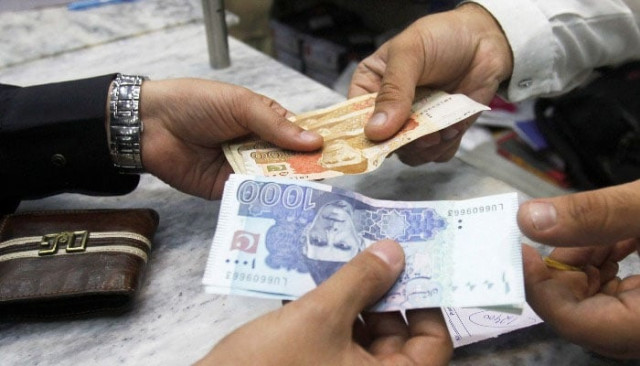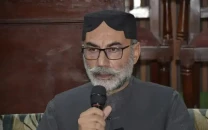PTI govt mulls abolishing fifth schedule of customs act
Aims to generate Rs100b revenue of the total Rs600b tax collection target set by IMF

Aims to generate Rs100b revenue of the total Rs600b tax collection target set by IMF. PHOTO: FILE
If the government approves the proposal, the cost of textile machinery, aircraft, pharmaceuticals, medical equipment, agriculture machinery, fertiliser machinery and power generation plants would go up from July.
The packaging materials would also become expensive, which will push the prices of fast moving consumer goods higher.
“The Federal Board of Revenue and the National Tariff Commission (NTC) have proposed to abolish the Fifth Schedule of the Customs Act 1990,” FBR Customs Policy Member Javed Ghani told the National Assembly Standing Committee on Finance and Revenue on Monday.
The fifth schedule deals with concessional customs duty rates on imports of machinery, goods and materials. If the government approves the policy, it will affect the rates of nearly 400 tariff lines. Majority of the 400 tariff lines are currently subject to 0% to 5% customs duty rates. If abolished, their import duties would go up to as high as 22%.
Ghani said the total cost of concessions in customs duty rates stood at Rs186.1 billion during the July to March period of this fiscal year 2018-19.
Of this, the impact of reduced customs duty rates for the nine-month period was Rs75 billion under the Fifth Schedule of the Customs Act.
During the last fiscal year, the FBR had sustained Rs92.4 billion losses due to reduced customs duty rates.
The deletion of the schedule from the Customs Act would provide a fiscal space of over Rs100 billion to the government in the next fiscal year 2019-20, starting from July.
Pakistan and the IMF on Monday began talks for the bailout package. The IMF has proposed a condition to make tax efforts equal to 1.7% of the Gross Domestic Product (GDP) for the next fiscal year. Of this, Pakistan is required to take policy measures equal to 1.4% of the GDP or over Rs600 billion.
Any decision to abolish the fifth schedule would cover only one-sixth of the additional tax measures and the government will also have to make similar moves in the Sales Tax Act. There is a strong likelihood that the reduced General Sales Tax rates will also be increased to standard 17%.
The items that will be removed from the fifth schedule will be subject to the standard customs duty rates, ranging from 3% to 22%, including additional customs duty.
Pakistan's debt worth $27b to mature in two years: IMF
The raw materials attract minimum custom duty rates of 3% in addition to additional customs duty. The finished products are subject to 20% maximum tariffs, plus 2% additional duty.
The FBR member also said that rationalisation principles set for 2019-20 budget included incentives to local industry, reducing complexities of cascading principle where possible, and relief to general public, particularly those falling below or in range of poverty line.
The NTC officials also informed the committee that both the NTC and FBR had proposed to abolish the Fifth Schedule of the Customs Act 1990. The items under the fifth schedule had been proposed to be brought into the First Schedule of the Customs Act in the coming budget.
Around 400 tariff lines were availing exemption without any condition under the Fifth Schedule of the Customs Act 1990 which may be brought into the First Schedule.
There is also a proposal from the NTC to introduce customs duty slab of zero per cent in the budget and reduce concessionary SROs.
However, due to pressing revenue demands by the IMF, it is unlikely that the federal government will be in a position to give relief in customs duty.
The NTC has suggested the government to immediately reduce tariff on raw materials and intermediate goods, reduce customs duty to zero on raw materials and keep the level of nominal protection intact for domestic manufacturers for one year and then reduce it gradually.
Ghani said, “The regular duties would be gradually decreased and ultimately abolished in a phase-wise manner.”
Under the budget policy for 2019-20, the FBR customs policy member said the high tariff on import of non-essential and luxury goods would continue till trade balance improved significantly.



















COMMENTS
Comments are moderated and generally will be posted if they are on-topic and not abusive.
For more information, please see our Comments FAQ